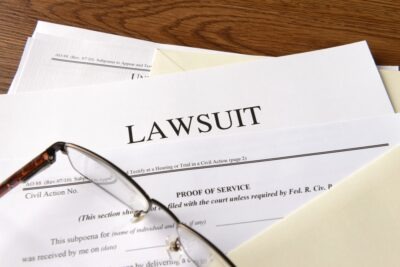
Filing a personal injury lawsuit requires knowledge of the civil legal system and tort law. When you’re already dealing with injuries, medical bills, and arguing with insurers, learning the legal system enough to file a lawsuit alone can jeopardize your chances of receiving fair compensation.
The better way is to work with a lawyer. An Atlanta personal injury lawyer will protect your legal rights while handling all aspects of your lawsuit, from initial filing to final resolution. Professional legal representation significantly increases your likelihood of success in a personal injury lawsuit.
Your attorney will manage crucial deadlines, handle intricate paperwork, gather necessary evidence, and negotiate with insurance companies on your behalf. This comprehensive support allows you to focus on what matters most–your recovery.
Do You Even Need to File a Personal Injury Lawsuit?
A lawsuit becomes necessary when you’ve suffered injuries due to someone else’s negligence and insurance negotiations haven’t resulted in fair compensation. Most personal injury claims are settled outside of court.
The decision to file depends on several factors, including the severity of your injuries, the impact on your life, and the other party’s willingness to offer reasonable compensation. Time is crucial, as Georgia law typically gives you two years from the date of injury to file your lawsuit.
It’s important to have your case evaluated by a legal professional who can help determine the best course of action. A lawsuit will take longer to obtain the compensation you deserve, but sometimes, it’s the only option.
Get the strong arm
Why Self-Representation Can Harm Your Case
Insurance companies have teams of lawyers working to minimize their payouts, and representing yourself puts you at a significant disadvantage in negotiations and court proceedings.
Without legal training, you might miss crucial filing deadlines, fail to properly value your claim, or make statements that could damage your case. The legal system has specific procedures and requirements that must be followed precisely, and a single mistake could result in your case being dismissed or significantly reduced in value.
Even seemingly straightforward cases can involve legal issues that require professional interpretation. An attorney’s knowledge of case law, court procedures, and negotiation strategies is essential for your success.
The Legal Process Timeline
If you choose to file a personal injury lawsuit, you need to know the different phases of the legal process. A lawsuit involves several distinct stages, each with its own requirements and timeframes.
Initial Filing and Response
The process begins by filing a formal complaint in the appropriate court, outlining your claims and the compensation you seek. This document explains how the defendant’s actions caused your injuries and the legal basis for holding them responsible.
The defendant then has a deadline to file an answer to your complaint, where they respond to your allegations. Their response might admit or deny your claims, raise legal defenses, or make counterclaims against you. You or your attorney will need to respond to these.
The Discovery Phase
Discovery is a crucial phase in which both sides gather evidence and information about the case. To present and challenge evidence, you’ll need to know how to use written questions (interrogatories), document requests, and formal interviews under oath (depositions).
During this phase, you may need to hire medical professionals, accident reconstruction specialists, and other experts who can support your case. These expert opinions help establish the extent of your injuries and the long-term impact on your life.
Pre-Trial Motions and Negotiations
Both sides may file motions asking the court to make specific rulings as your case progresses. You must know how to file motions to include or exclude evidence, resolve legal issues, or even seek judgment in your favor without a trial if the evidence clearly supports your claim.
Settlement negotiations typically intensify during this period. Many cases are resolved at this stage if they weren’t resolved before filing the personal injury lawsuit.
Mediation and Settlement Conferences
The court may require participation in mediation or settlement conferences before trial. These sessions involve a neutral third party who helps facilitate negotiations between you and the defendant.
Trial Preparation and Court Proceedings
If your case proceeds to trial, you’ll need to prepare to present your case. This includes organizing exhibits, preparing witnesses, and developing persuasive arguments. A personal injury trial typically lasts several days.
During the trial, each side presents its case through opening statements, witness testimony, expert opinions, and closing arguments. After arguments are made, the court will make a decision.
You Don’t Need to Know How to File a Personal Injury Lawsuit on Your Own
You have enough on your plate to recover from your injuries. Instead of arguing with insurers yourself or figuring out court filings, hire a professional who files lawsuits and negotiates with insurers all the time. If you’re considering a lawsuit, you need a lawyer.
Contact John Foy & Associates today for a free consultation about your case. We’ll evaluate your situation, explain your options, and help you understand the best path forward. Let us handle the legal complexities while you focus on your recovery.
404-400-4000 or complete a Free Case Evaluation form





